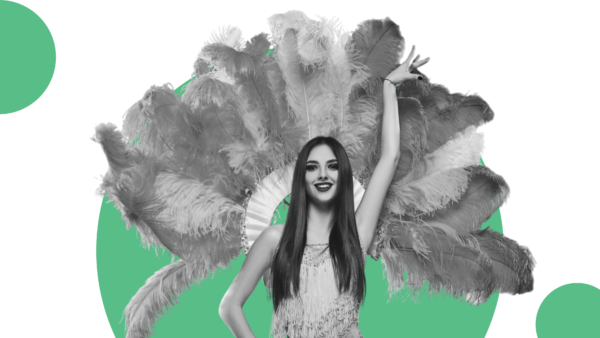
The Best Celebrations in Brazil According to Its People
Discover Brazil’s most beloved celebrations, from Carnival to Christmas, based on a survey of over 500 Brazilians.
Begin your market research in Brazil and easily collect, analyze, and report data with just a few clicks.
Trusted by
Use our survey builder to recruit respondents from anywhere in Brazil or bring in your own respondents.
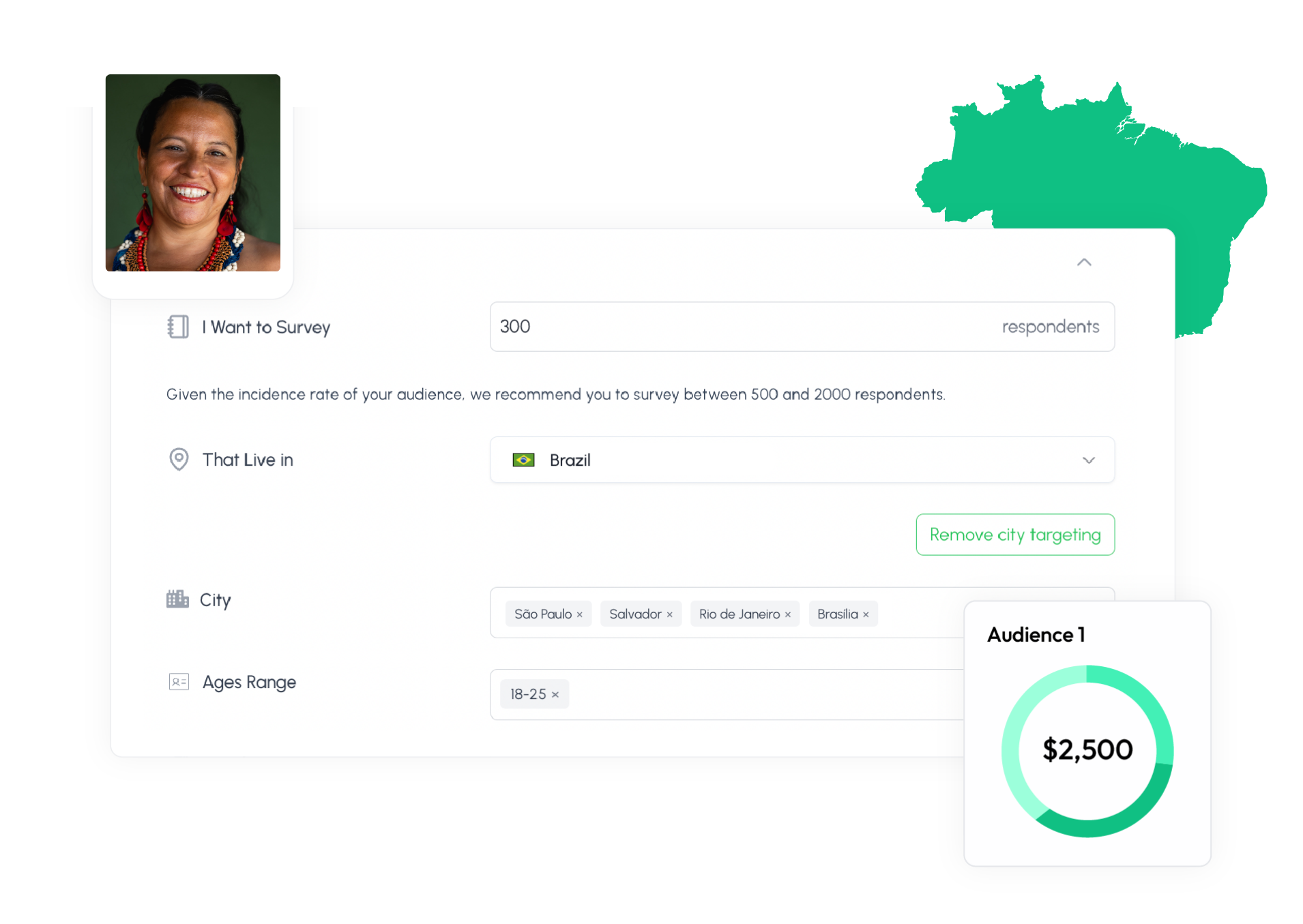
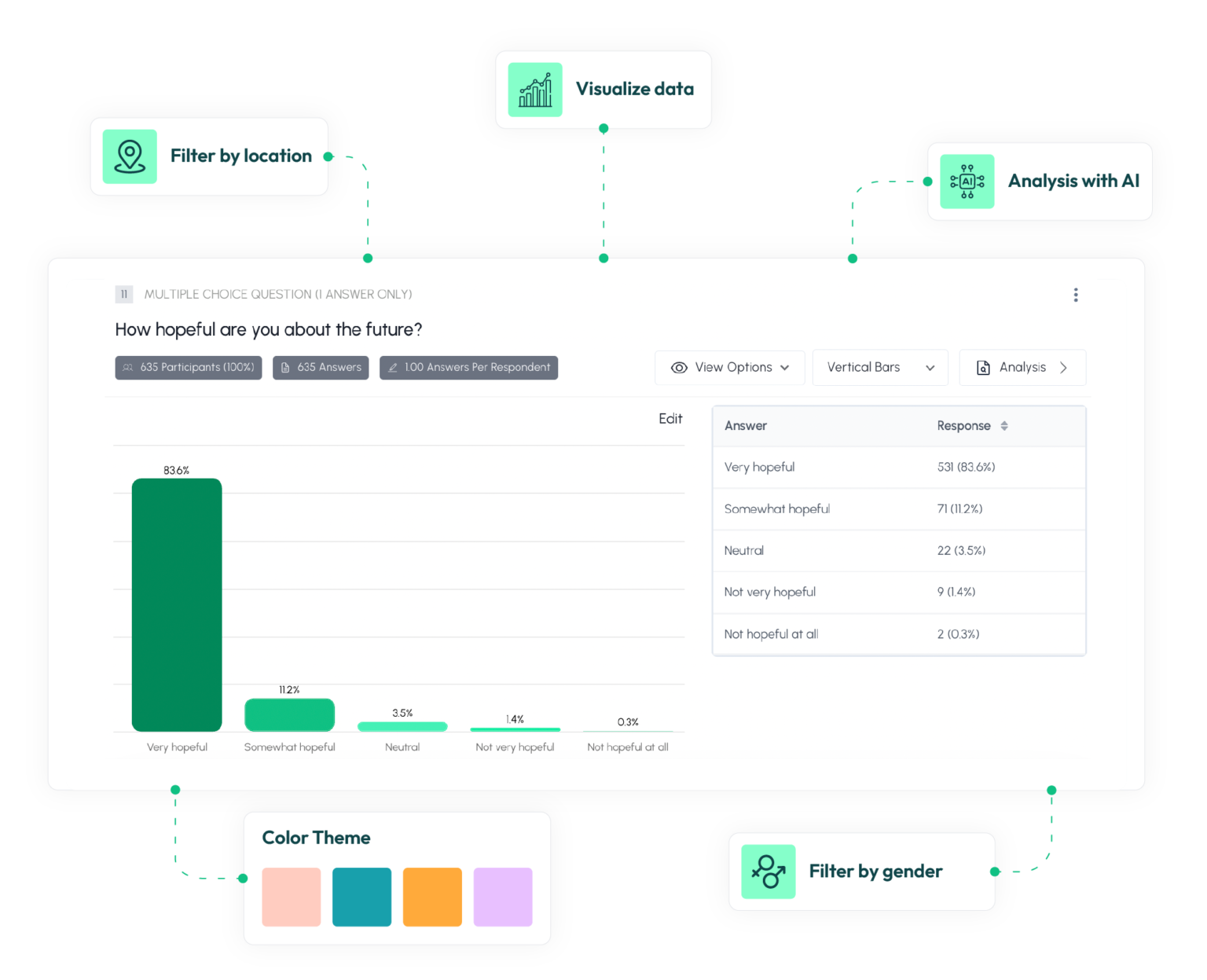
Import your existing surveys and interviews, and have them automatically visualized in a customizable report.

Gain access to the best quality respondents worldwide through our own methodology or vetted partners.

Conduct market research quickly: start a project in seconds, gather data in days, and create reports in clicks.
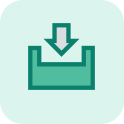
Enjoy our platform without any upfront commitments—pay only for the projects you undertake.
Start here, with some key market information about the country.
Brazil’s economy, the largest in Latin America, reached a nominal GDP of BRL 10.9 trillion (approximately USD 2.17 trillion) in 2023, making it the ninth-largest globally according to the IMF.
This growth was driven by a 15.1% expansion in agriculture, particularly in soybean and corn production, alongside increases in industry and services as noted by IBGE.
Despite challenges like high public debt and a complex tax system, Brazil benefits from strong international reserves and ongoing reforms to simplify taxes and boost productivity, as highlighted by the World Bank.
Brazil is the sixth most populous country globally, with a diverse population of over 215 million people as of 2023. The age distribution in Brazil is characterized by a relatively young population, with significant portions in the working age groups. As of recent data, the age distribution is roughly as follows:
18-24 years: Approximately 11%
25-34 years: Around 18%
35-44 years: About 16%
45-54 years: Approximately 14%
55-64 years: Around 11%
65 years and older: About 9%
Geographically, Brazil’s population is concentrated in the Southeast region, particularly in states like São Paulo and Rio de Janeiro, which together account for over 40% of the country’s population. The Northeast region is also densely populated, with significant urban centers like Salvador and Recife.
This demographic landscape presents both opportunities and challenges for economic development and social policies, as noted by the IBGE and World Bank.
Here are some key Brazilian brands across different sectors:
Telecommunications
Vivo, Claro, and Oi are leading telecommunications companies in Brazil, offering mobile and internet services.
Banking
Itaú is the most valuable banking brand in Brazil, followed by Banco do Brasil and Bradesco. Nubank is a prominent digital bank.
Food and Beverages
Brahma and Skol are well-known beer brands in Brazil.
Cosmetics
Natura is a popular cosmetics brand emphasizing natural ingredients and sustainability.
Fashion
Havaianas is a globally recognized flip-flop brand from Brazil. Local fashion brands like Salinas and Lenny Niemeyer are known for their high-quality swimwear.
These brands reflect the diversity and strength of Brazil’s economy and culture.
Digital Economy
Brazil’s digital economy is rapidly expanding, driven by e-commerce platforms like Mercado Livre and Magazine Luiza, alongside fintech innovations such as Nubank.
Mining
Brazil is one of the world’s largest mineral producers, excelling in iron ore, gold, niobium, and bauxite. Mining contributes around 2-4% to GDP, with major operations in states like Minas Gerais and Pará (Britannica).
Manufacturing
The manufacturing sector accounts for approximately 18% of Brazil’s GDP, focusing on automotive production, electronics, and textiles (Investopedia).
Agriculture
Agriculture contributes about 12% to Brazil’s GDP. The country is a leading exporter of soybeans, coffee, sugarcane, and beef, supported by vast arable land (European Parliament).
Tourism
Brazil attracts visitors with its diverse cultural heritage and natural wonders like the Amazon rainforest and Iguazu Falls. Cities like Rio de Janeiro and Salvador are popular destinations.
Healthcare and Pharmaceuticals
The healthcare sector is growing due to increased investments in infrastructure and local pharmaceutical production (World Bank).
Social media is deeply ingrained in Brazilian culture, with over 67.8% of the population actively using social media platforms as of early 2025, totaling about 144 million users.
Platforms like Instagram, Facebook, and WhatsApp are particularly popular. Instagram is a leading platform for visual content, while WhatsApp is widely used for both personal and business communication.
YouTube also has a significant presence, with many Brazilians using it for entertainment and educational content. Social media plays a crucial role in marketing and consumer engagement in Brazil, offering brands a powerful tool to reach their target audiences.
Brazil is the largest country in South America, spanning over 8.5 million square kilometers. It borders almost every other South American country and features diverse landscapes from the Amazon rainforest to the beaches of Rio de Janeiro and the business hub of São Paulo.
Brasília
214.3 Million
2,174 trillion
Explore our previous reports from Brazil to gain insights into consumer trends and behaviors

Discover Brazil’s most beloved celebrations, from Carnival to Christmas, based on a survey of over 500 Brazilians.
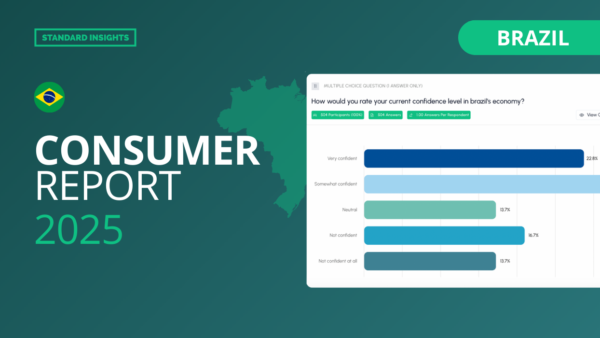
Discover how Brazil’s consumers navigated 2024 and their expectations for 2025 across key topics.
Create your free account, and use our set of tools to conduct your research easily.